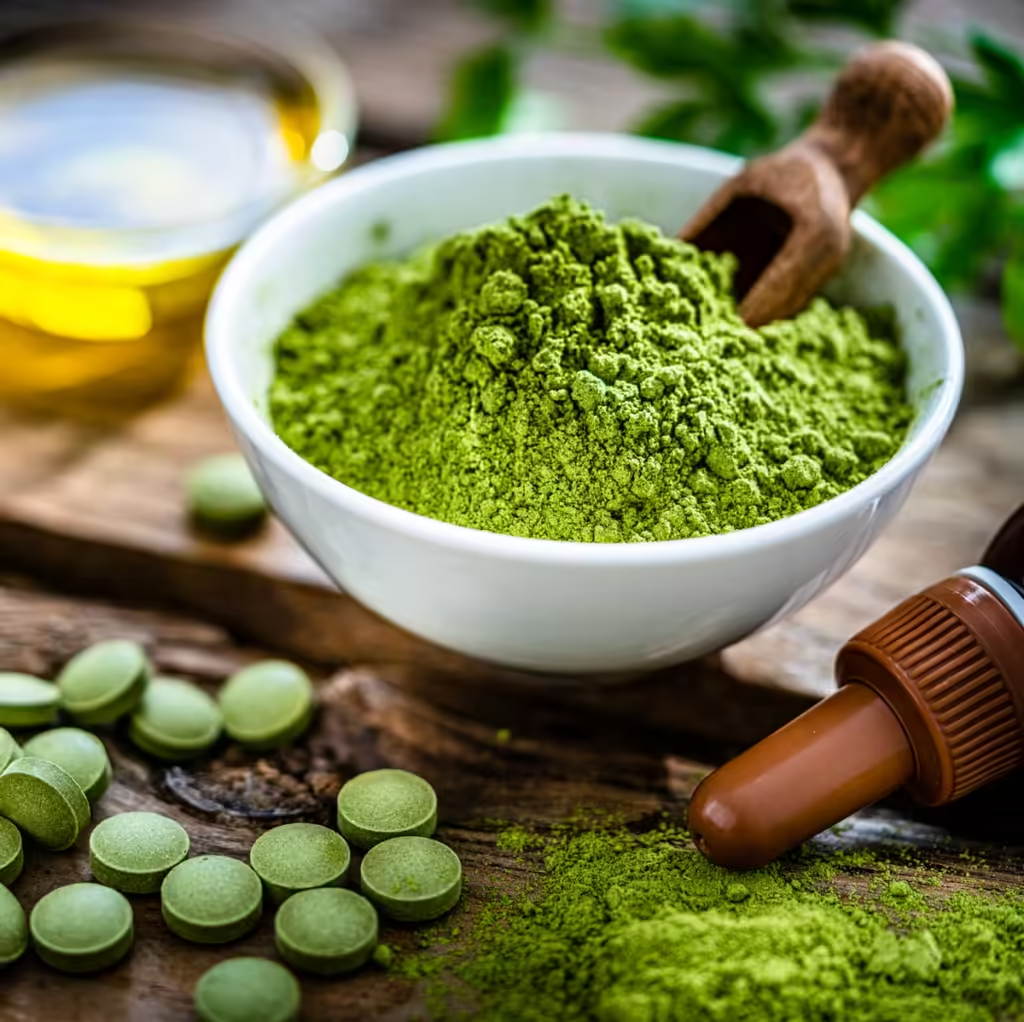Among the reasons why moringa leaves are known as a “miracle tree,” there are several ways in which it is full of nutrients, giving the body certain benefits, especially regarding its immune levels, as well as brain functions. Let’s discuss the top five health benefits of moringa leaves and just how this humble plant can be a wonder worker for one’s overall well-being.
What Are Moringa Leaves?
Let’s dive deep into all these health benefits. But before that, it would be great to first know what these moringa leaves are and why they’re getting so much attention these days.
A Brief Overview of Moringa
Moringa, scientifically known as Moringa oleifera, is one fast growing tree found in South Asia. It has been used in the practice of traditional medicine for its leaves, seeds, and pods, which in due course has been prized for their nutritional and therapeutic values. The richest source of vitamins, minerals, and antioxidants are found in the Moringa leaves.
Composition of Moringa Leaves Nutrients

As discussed earlier, moringa leaves are rich in some of the very beneficial nutrients, such as vitamin C, vitamin A, calcium, potassium, and proteins.
- 7 times more vitamin C than oranges
- 10 times more vitamin A than carrots
- 17 times more calcium than milk
- 9 times more protein than yogurt
With such a nutrient profile, it’s no wonder that it is well-respected for the health benefits displayed by its green leaves.
1. Rich in Antioxidants
The most important benefit of moringa leaves is that they contain an exceptionally high content of antioxidants that really do protect your body from oxidative stress and free radical damage.
Neutralizing Free Radicals
Free radicals are dangerous particles that can destroy cells and bring chronic diseases to one’s life. Moringa has greater amounts of antioxidants such as quercetin, chlorogenic acid, and vitamin C. These antioxidants destroy free radicals and therefore reduce the chances of the kind of illness that could be brought about.
Healthy Glowing Skin
Moringa contains antioxidants that benefit your skin by enhancing health. The plant breaks down aging markers of wrinkles and fine lines.
2. Benefits Brain
Positive results have been given to people who eat moringa leaves that it boosts cognitive function and prevents mental decline.
The Role of Moringa in Cognitive Function
A flavonoid-rich and vitamin E and C content plant, moringa, is thought to reduce oxidative stress in the brain, often associated with impairments in cognitive functions. Thus, by reducing oxidative stress, moringa supports better memory and focus with overall cognitive health.
Moringa Potential Against Neurodegenerative Disorders
There are also recent studies that show the potential of moringa to prevent or delay neurodegenerative diseases like Alzheimer and Parkinson. It contains anti-inflammatory and antioxidant properties important for the overall health of the brain, maintaining neural pathways.
3. A Natural Anti-inflammatory Agent
Chronic inflammation is one of the leading causes of health disorders in people that range from arthritis to heart diseases. Moringa leaves are full of those different anti-inflammatory compounds found inside them, which decrease inflammation inside your body.
Reduction of Chronic Inflammation
The Moringa contains isothiocyanates: a type of compound that helps to fight inflammation. Steady consumption of moringa leaves eliminates chronic inflammation in your body, hence ending it and preserving it from long-term damage.
Health Benefits for the Joints
Moringa is helpful in diminishing the pain caused in joints and arthritis so that individuals may move freely and experience less pain for some time.
4. Helps Regulate Blood Sugar Levels
One of the great positive features of moringa leaves can be mentioned as it does an excellent job regulating blood sugar, which can be added to an individual’s diet if that person has diabetes.
Moringa for Diabetic Control
It has been proven that moringa can lower blood sugar after a meal, is an insulin spike suppressor and keeps blood sugar at bay, thus making it one of the most useful natural remedies for people who have type-2 diabetes.
Blood Sugar Stability
Chlorogenic acid is one of the contents found in Moringa leaves, which always ensures that glucose is either absorbed or its release in cells. This is a natural management of blood sugars and ensures that the glucose levels do not jump extraordinarily during some periods of the day and crash at other times of the day.
5. Improves Heart Health
Your heart is an engine for your body, and moringa leaves can keep it running well by keeping your heart healthy.
Lowering Cholesterol Levels
Moringa lowers the level of bad cholesterol (LDL), which is one of the primary causes leading to heart diseases. As it lowers cholesterol, it prevents the plaque from building up in the arteries, making the heart better, all in all.
Blood Circulation
In addition to low cholesterol levels, the moringa leaves promote improved blood circulation since they prevent the hardening of the inner linings inside the arteries. This improves flow for cells to get adequate oxygen and other nutrient supply.
How to Add Moringa Leaves into Your Life
Now that you see how amazing these moringa leaves are, you are probably eager to see how to add them to your diet.
Simple and Creative Ways to Use Moringa
You can have fresh moringa leaves, dried leaves, or powdered leaves. Your smoothies can have moringa leaves added to them, use moringa leaves as a salad garnish, or brew it as moringa tea. If you are adventurous, add some moringa mix to your soups or stews or mix it into your baked goods!


